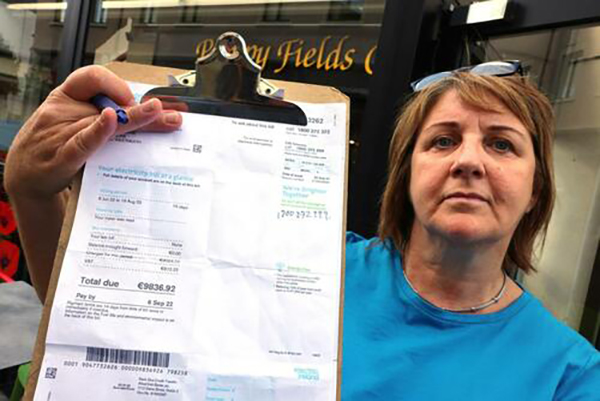World’s largest NFT marketplace OpenSea finds itself in the middle of thefts and lawsuits
06/10/2022 / By Kevin Hughes

OpenSea is an eBay-like site where people can look around for millions of nonfungible tokens or NFTs, purchase the images and put their own up for sale.
In the past 18 months, OpenSea has become the leading and the largest NFT marketplace in the world. One of the foremost crypto start-up companies, it has produced more than $400 million from investors, pricing it at an amazing $13.3 billion and enlisted executives from tech giants like Meta and Lyft.
Although OpenSea has grown, it has also struggled to avoid theft and fraud.
Chris Chapman is one of many crypto aficionados who have cast doubts about OpenSea’s ability to address these issues. He used to own one of the most valuable properties in the crypto world, which is an extraordinary digital image of a spiky-haired ape dressed in a spacesuit. The flaw that cost Chapman his ape has led to months of accusations, forcing the start-up company to create more than $6 million in payouts to NFT traders.
Chapman acquired the NFT token last year as a broadly hyped series of digital collectibles called the Bored Ape Yacht Club became a sensation. In December, he filed his Bored Ape for sale on OpenSea, placing the price at about $1 million. Two months later, as he was preparing to take his daughters to the zoo, OpenSea sent him a notification informing him that the ape had been sold for about $300,000.
According to Chapman, a crypto scammer utilized a glitch in OpenSea’s system to buy the ape for considerably less than it’s worth. Last month, OpenSea gave him about $30,000 in compensation, but Chapman turned it down in hopes of negotiating a bigger payment.

OpenSea is making a lot of stupid, dumb mistakes
The 35-year-old Chapman said OpenSea has made “a lot of stupid, dumb mistakes” and the people behind it “don’t really know what they’re doing.”
Customers have also complained that OpenSea is late to block the sale of NFTs that were taken by hackers, who can make a fast profit by flipping the stolen goods. And plagiarized art has increased on the site, angering artists who once regarded NFTs as a financial lifeline.
The company is now facing no less than four lawsuits from traders and one of its former executives were indicted this month on charges connected to NFTs insider trading. Nathaniel Chastain, OpenSea’s former head of product, was charged by the Department of Justice with one count of wire fraud and one count of money laundering.
According to the Justice Department, Chastain used OpenSea’s confidential business information about what NFTs were going to be featured on its homepage to secretly purchase dozens of NFTs shortly before they were featured.
OpenSea’s problems are accumulating just as demand for NFTs cools off amidst a crash in cryptocurrency prices.
According to the industry data tracker NonFungible, NFT sales have fallen about 90 percent since September. (Related: Celebrity-endorsed NFTs lose value, leaving investors with virtually nothing)
OpenSea is also battling competition from newer marketplaces created by recognized crypto companies like Coinbase.
The company’s conflicts with users demonstrate some of the central tensions of Web3, a utopian vision of a more democratic internet supervised by regular people rather than giant tech companies. Like several crypto platforms, OpenSea does not compile the names of most of its customers and publicizes itself as a “self-serve” gateway to a generally regulated market. But users progressively want the company to act more like a traditional business by reimbursing fraud victims and cracking down on theft.
In three interviews, OpenSea executives recognized the scale of the problems and stated the company was taking steps to boost trust and safety.
The New York-based OpenSea has hired more customer-service staff with the goal of responding to all complaints within 24 hours. The company has suspended listings of stolen NFTs and has a new screening process to thwart plagiarized content circulating on the platform.
“Like every tech company, there’s a period where you’re catching up. You’re trying to do everything you can to accommodate the brand-new users that are coming into the space,” OpenSea’s co-founder and CEO Devin Finzer said.
Meanwhile, days after OpenSea’s former executive was charged for insider trading of the digital assets, Finzer has dedicated to intensify efforts in halting thefts, scams and IP infringements on the marketplace.
In a blog post, Finzer said while plagiarism, IP infringements and thefts are prohibited under OpenSea’s Terms, “at our scale, comprehensive policies aren’t enough.”
He added the company recently started a new verification system that identifies genuine accounts and content more clearly to keep scammers out and that OpenSea’s copymint prevention system is the most advanced spam and fraud reduction tool the company has built.
“It uses image recognition technology to scan NFTs and identify potential duplicates – including flips, rotations, and other permutations,” Finzer said.
Finzer declared that the next step in OpenSea’s battle against thefts and scams will be to automatically hide suspicious NFT transfers, to lower their visibility on individual profile pages.
Follow CryptoCult.news for more news related to NFTs.
Watch the video below to learn more about NFTs.
This video is from high-impact Flix and more!!! on Brighteon.com.
More related stories:
Globalists could usher in Great Reset using state-owned BLOCKCHAIN infrastructure.
European central bank president says crypto is “worth nothing” and calls for more regulations.
If Coinbase goes bankrupt, all of its users’ funds could disappear.
Sources include:
Submit a correction >>
Tagged Under:
Big Tech, Collapse, computing, conspiracy, corruption, crime, crypto cult, deception, fraud, Glitch, IP infringements, Lyft, market crash, marketplace, meta, money laundering, NFT, OpenSea, plagiarism, scams, tech companies, tech giants, technocrats, thefts
This article may contain statements that reflect the opinion of the author
RECENT NEWS & ARTICLES
COPYRIGHT © 2017 COLLAPSE.NEWS
All content posted on this site is protected under Free Speech. Collapse.news is not responsible for content written by contributing authors. The information on this site is provided for educational and entertainment purposes only. It is not intended as a substitute for professional advice of any kind. Collapse.news assumes no responsibility for the use or misuse of this material. All trademarks, registered trademarks and service marks mentioned on this site are the property of their respective owners.





















